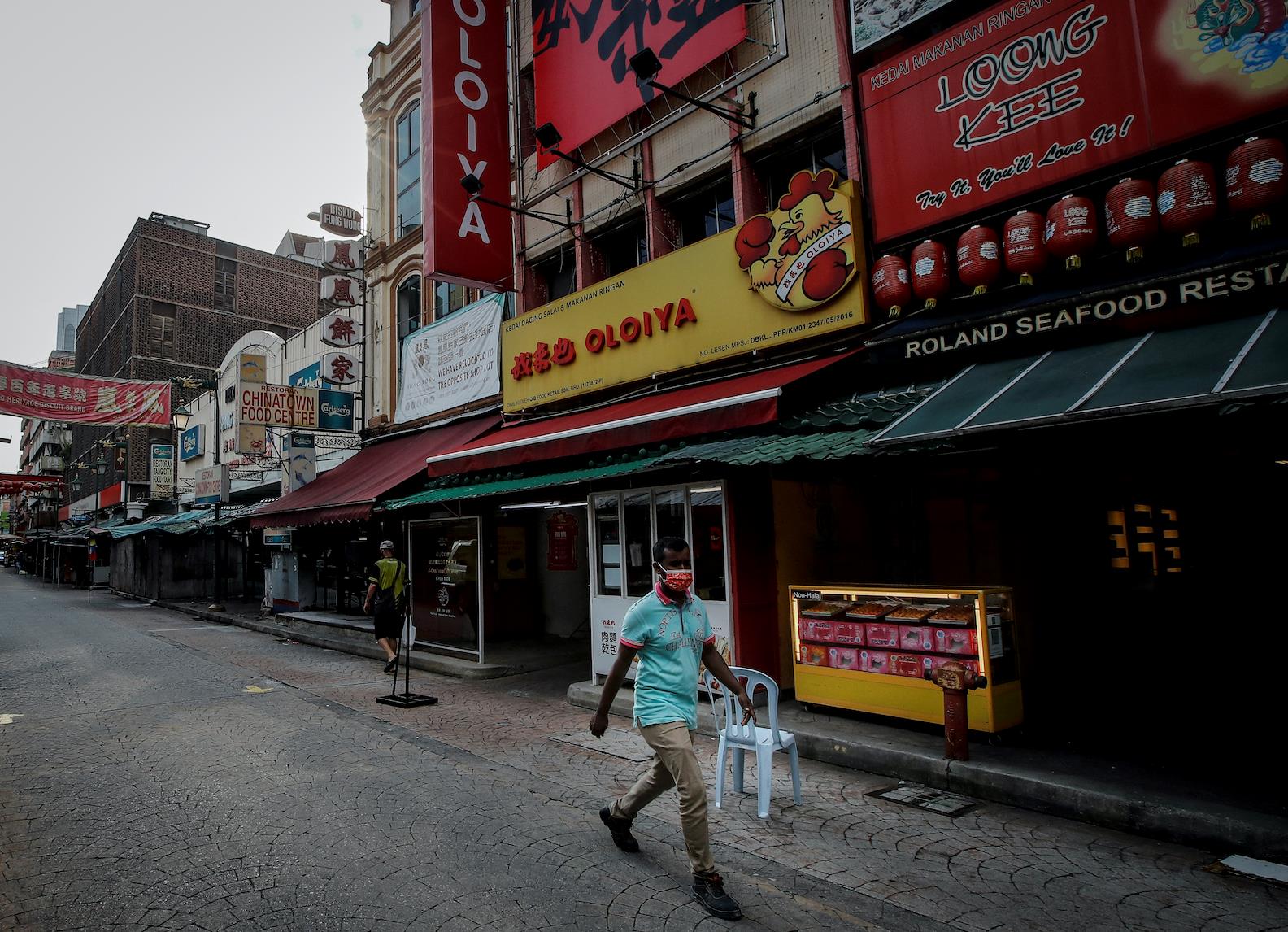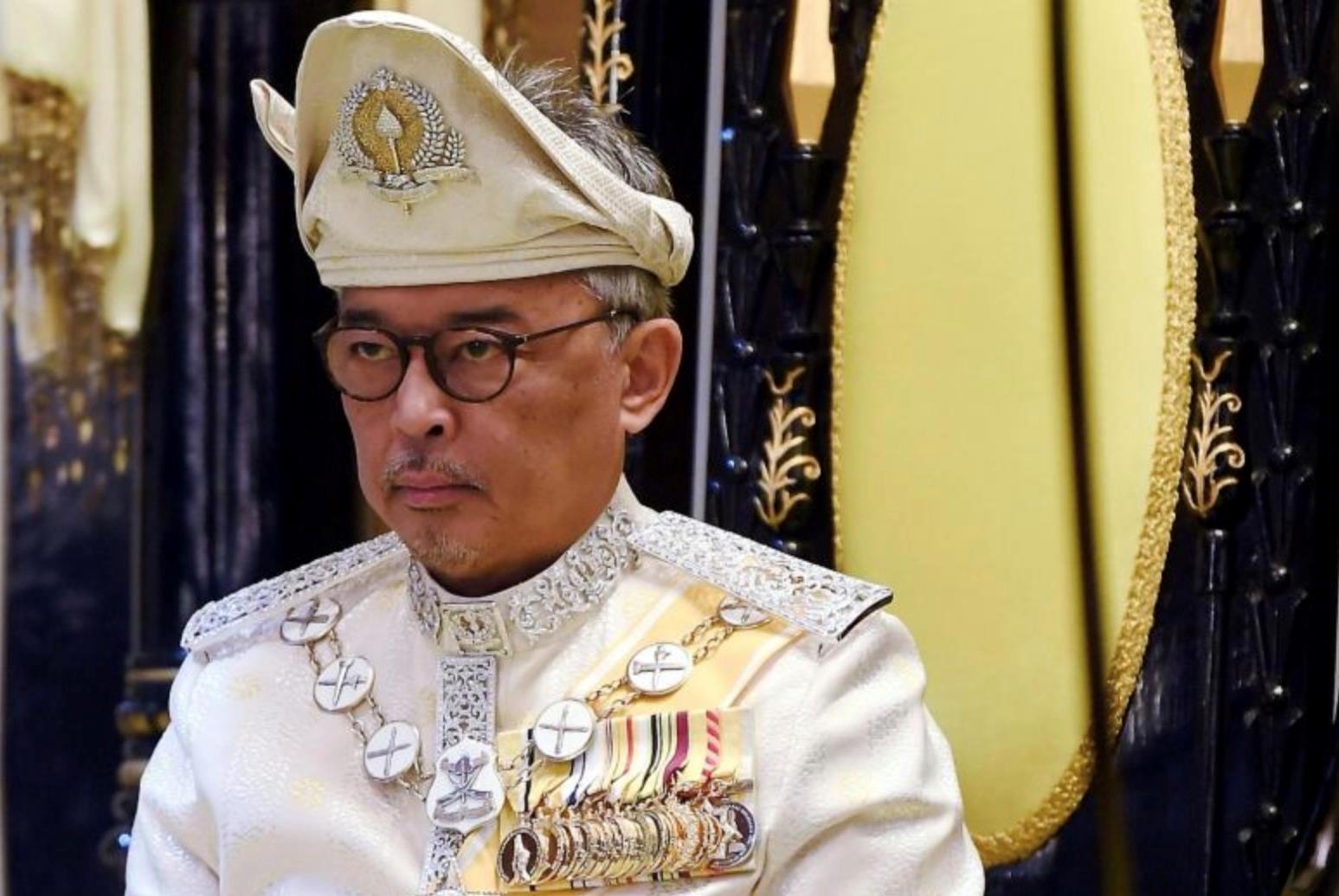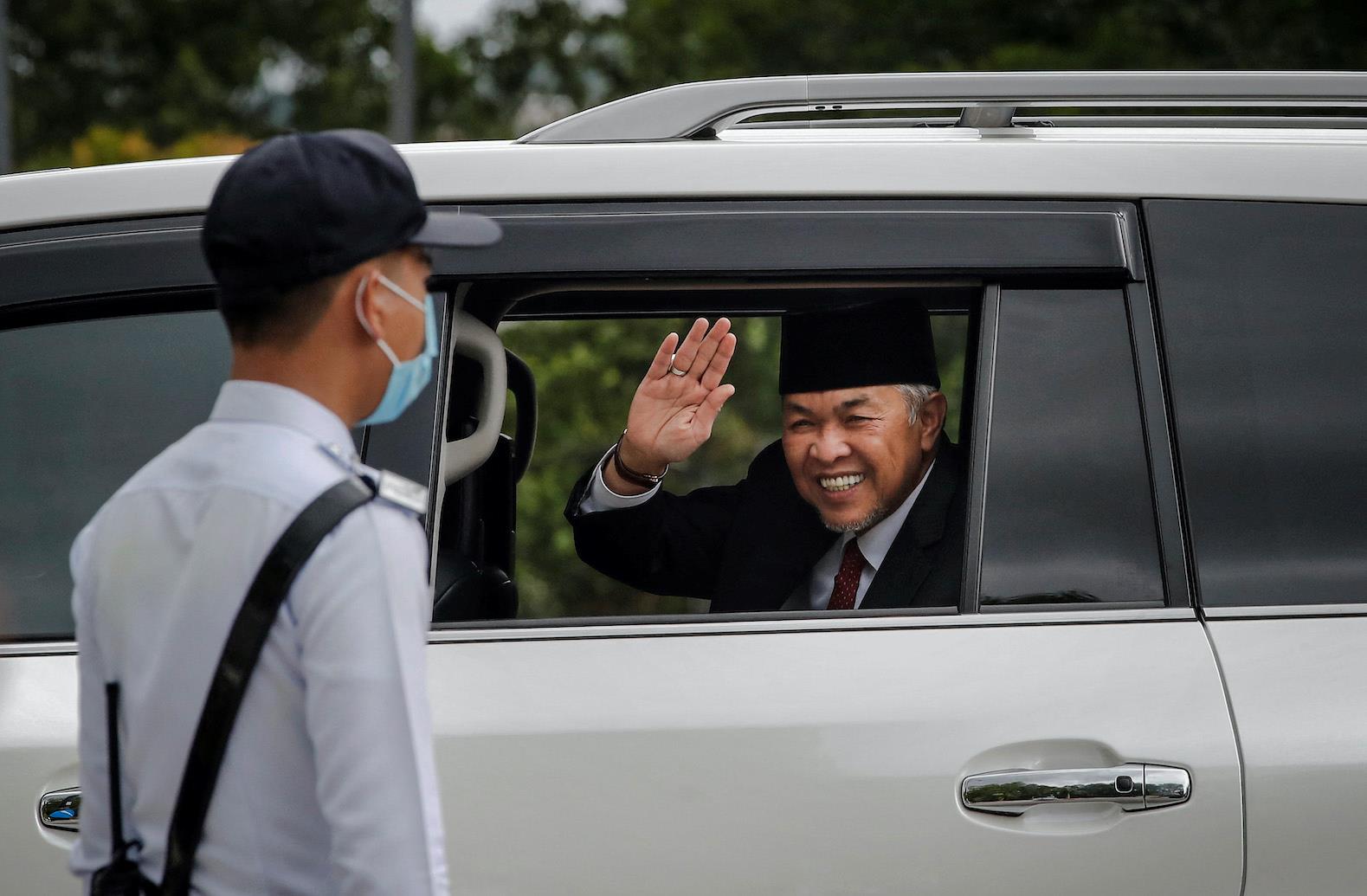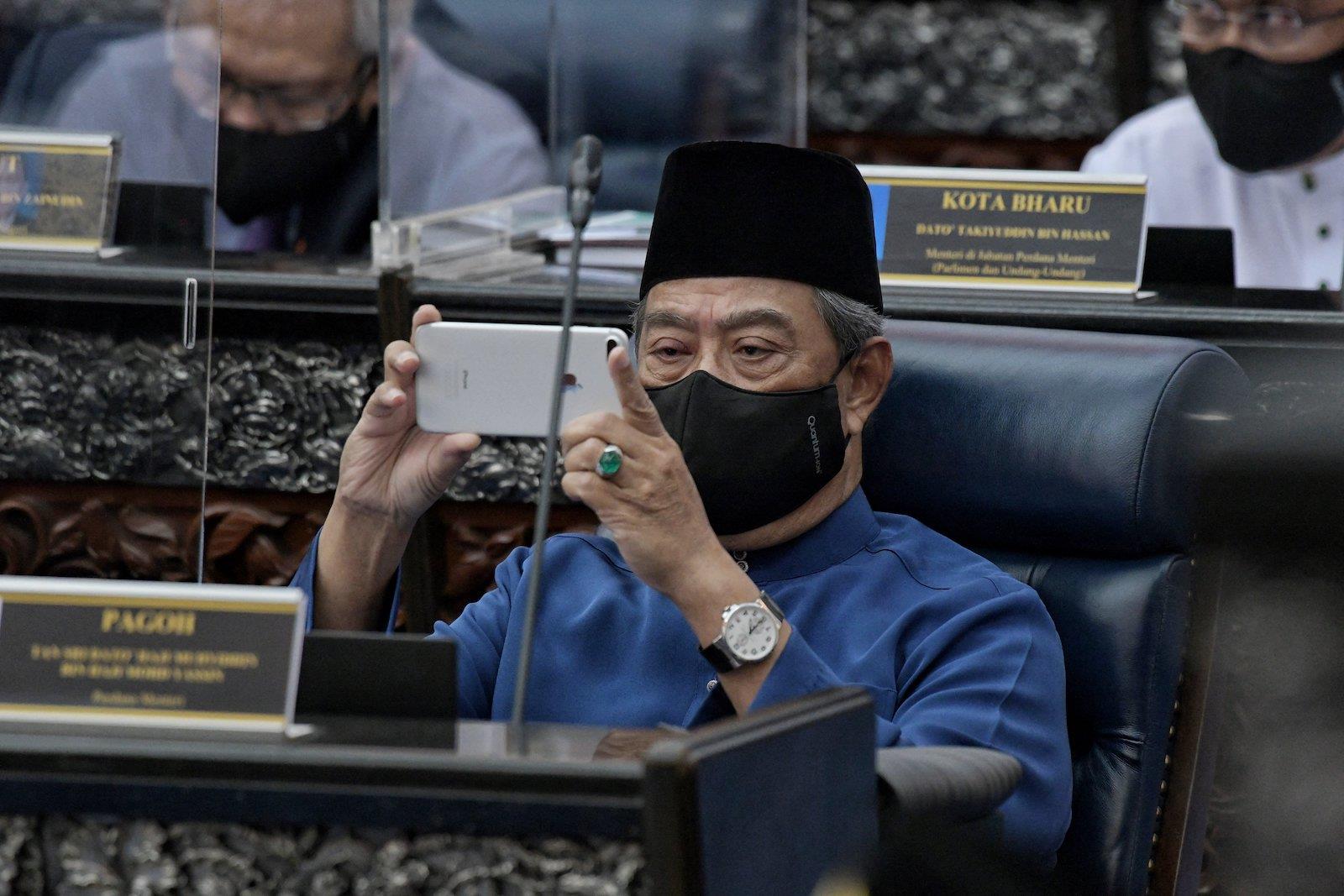(MENAFN- Asia Times) SINGAPORE – Malaysian Prime Minister Ismail Sabri Yaakob has been in office for less than a fortnight with a mere four-seat majority at the helm of the nation's third administration in just three years.
While his rivals are plenty and Political risks abound, not least the ever-present potential for a new round of parliamentary defections that bring down yet another government, signs for now point to a period of relative stability.
More stability than Malaysians have become accustomed to amid recent turbulent times, at least. Ismail's rise has resulted in a political ceasefire between warring factions of the ruling coalition that brought down the predecessor Muhyiddin Yassin government, but have since recoalesced to support the new administration.
Ismail, a former defense minister, has taken the reins at a time of unprecedented turmoil as daily Covid-19 cases and deaths hit record highs, stretching health resources and battering the economy. With the same razor-thin majority of his predecessor, the premier is similarly beholden to the various parties and personalities backing him.
But the more Malaysia's politics change, the more they stay the same. After announcing his Cabinet last week, Ismail faced criticism from within and outside his party, the United Malays National Organization (UMNO), for largely retaining the previous Perikatan Nasional (PN) administration's line-up with only a minor reshuffle of personnel and portfolios.
With the previous government's pandemic management and economic recovery strategies widely panned for failing to deliver, observers have voiced doubts that Ismail's reconfigured Cabinet comprised of mainly the same ministers will resolve the issues of competence that plagued the last administration and do a better job.
Malaysia has recorded 1.76 million Covid-19 cases with over 17,100 deaths out of a population of 32.7 million. The pandemic has already cast a shadow over Ismail's tenure, forcing the 61-year-old to miss the swearing-in of his new Cabinet at the national palace this week and undergo home quarantine after coming into contact with a Covid-19 patient.

A man wearing a face mask as precaution measures against the spreading of Covid-19 walks along an empty street in Kuala Lumpur, Malaysia on May 28, 2021. Photo: AFP / EyePress Newswire / FL Wong
In his maiden National Day address on August 30, Malaysia's ninth premier pledged to continue to steer the country out of the Covid-19 crisis and revitalize the economy by ramping up vaccinations to achieve herd immunity.
Ismail has also sought to bridge political divisions with outreach to the Pakatan Harapan (PH) opposition coalition.
The premier met with opposition leader Anwar Ibrahim and other PH leaders on August 25, and signed a rare joint statement pledging to strengthen Parliament and uphold an independent judiciary.
Opposition leaders were also invited to serve on two key government bodies, namely the National Recovery Council (NRC) and Special Committee on Covid-19.
Muhyiddin similarly offered opposition leaders an opportunity to join the NRC, which was turned down over concerns that their inclusion would amount to token appointments aimed at rubber-stamping government decisions. PH has yet to decide whether it will join either of the bodies, which put forth recommendations rather than set policy.
Francis Hutchinson, coordinator of the Malaysia Studies Program at Singapore's ISEAS-Yusof Ishak Institute, said the opposition's inclusion in the two bodies would“not equate to a substantial sharing of power,” and despite Ismail's talk about the need for unity,“he has precluded forming a unity cabinet, which could help boost his numbers.”
Despite that, Anwar told reporters following his audience with the premier that as long as the new government enacts people-centric policies, the opposition would not“complicate” an upcoming parliamentary vote of confidence on Ismail's leadership that is expected to be called when the legislature next convenes on September 13.
Malaysia's constitutional monarch Sultan Abdullah Sultan Ahmad Shah has directed the new administration to table a confidence vote so that its legitimacy is not in question. The king appointed Ismail after determining he had the backing of 114 out of 220 elected lawmakers through a secret ballot and individual interviews with legislators.

Malaysian Sultan Abdullah Sultan Ahmad Shah in a pre-Covid-19 file photo. Image: Facebook
Sultan Abdullah, who is known as the Yang di-Pertuan Agong, has also urged the new premier to reach across the aisle to foster bipartisan cooperation. Analysts say the administration's willingness to enact reforms could herald political goodwill and potentially lead to negotiations on a confidence-and-supply deal with the opposition.
Such an outcome, which in theory would see PH abstain from no-confidence votes against the government and extend support on budgetary matters, would undergird political stability and strengthen Ismail's hand in a situation where members of his fragile ruling coalition threaten to withdraw their support for his premiership.
“The opposition is the least of Ismail Sabri's worries. The real challenge is the struggle for dominance within the ruling coalition” between UMNO and Muhyiddin's smaller splinter party, Pribumi Bersatu Malaysia (Bersatu), said Oh Ei Sun, a senior fellow at the Singapore Institute of International Affairs.“But the main source of instability is within UMNO itself.”
In the previous PN administration, Bersatu was the leading party in government despite having fewer seats than UMNO, a sore point for a party accustomed to being at the apex of politics. That fueled an open revolt against Muhyiddin that split the party into pro and anti-PN camps.
Scandal-tainted UMNO president Ahmad Zahid Hamidi and former premier Najib Razak led a faction opposing Muhyiddin with backing from the party's supreme council. The majority of UMNO's legislators, however, supported Ismail's pro-PN faction. Zahid and 14 other legislators forced Muhyiddin's August 16 resignation by withdrawing support for him.
But Ismail stood with Muhyiddin, who promoted him to deputy premier in July, and is still seen as a traitor to his party by some UMNO insiders. Zahid initially resisted Ismail's bid for the premiership, but closed ranks around his candidacy when it became clear he was the only viable compromise contender.
Though Ismail holds the less-senior post of UMNO vice president, he was the highest-ranking UMNO party leader who could be appointed, said academic Hutchinson, pointing to corruption charges facing Zahid that preclude him from the post and the fact that UMNO's deputy president Mohamad Hasan is not a member of Parliament.
Zahid has since taken credit for UMNO reclaiming the premiership following its 2018 election loss and expressed high hopes for the new administration, which his faction has backed. But analysts see the potential of a reignited factional feud between Ismail's and Zahid's respective camps as the biggest flashpoint facing the new administration.

UMNO President Ahmad Zahid Hamidi waves to media as he leaves the National Palace after meeting with the King in Kuala Lumpur, August 17, 2021. Photo: AFP via EyePress Newswire / FL Wong
Tensions could quickly escalate if Zahid's camp finds fault in the new government's Covid-19 response and economic management and threatens to withdraw its support; if Ismail comes under pressure to intervene in court cases involving Zahid, Najib and other UMNO figures; or if Ismail mounts an open challenge to Zahid's hold over UMNO's presidency.
“In previous years, outgoing prime ministers would hand over the UMNO party presidency to the new prime minister and so on. I don't think that will be the case this time,” said analyst Oh.“Zahid is still very much intent upon keeping his position as party president, and as the prime minister Ismail Sabri could be pushed by his supporters to challenge him.”
Hutchinson said Ismail's ascent“could spell the end of Zahid's party presidency if the former decides he wants,” but that much will depend on when UMNO's elections, which have been postponed until late 2022, are actually held.
Ismail's government can remain in office until July 2023, but fresh general elections are expected to be called at some point next year.
If UMNO's elections are held after Malaysia's next general election,“Zahid will have a lot of influence as the party president decides who can run for Parliament,” said Hutchinson.“If they are held sooner, this could spell trouble for Zahid,” he added, noting that the“internal contradictions” that undermined the previous government are not resolved.
With UMNO back in control of the premiership, Ismail has moved to address long-standing complaints that the party was sidelined under the previous PN administration.
UMNO now has more ministers in government than Bersatu, but Ismail has had to placate his coalition partners in a difficult balancing act that has seen Zahid's camp lose out on certain positions.
One condition for Muhyiddin's backing of Ismail, which includes the crucial support of 50 PN lawmakers, is that no one facing criminal charges is included in Cabinet. The former premier similarly excluded corruption-accused figures from his Cabinet, instead opting to empower and, as some allege, co-opt mid-tier figures like Ismail.

Then-prime minister Muhyiddin Yassin taking pictures in Parliament before it was suspended due to a state of emergency, November 6, 2020. Photo: AFP via Malaysian Department of Information / Khirul Nizam
Only two lawmakers aligned to Zahid were promoted in the recent Cabinet reshuffle. While UMNO has more control over ministries in the new government, Bersatu still retains the highest number of deputy ministers, albeit at a reduced level. At the coalition level, though, PN still has the highest number of ministers and deputy ministers.
Like Muhyiddin for most of his short tenure, Ismail opted to appoint four senior ministers in lieu of a deputy premier. It was widely reported that a Bersatu leader would be named as his deputy, but Ismail left the position vacant likely to avoid the appearance of favoring one party or faction over another and triggering unease within UMNO.
Bersatu did, however, lose out to UMNO by being moved out of the ministries of rural development, communications and multimedia, and housing and local government, which are seen by analysts as key to solidifying grassroots support in the ethnic Malay Muslim heartlands ahead of the next election.
“I think the benefit of UMNO as a whole in the next general election would of course be somewhere on Ismail's mind, but I strongly suspect is at the back of his mind,” said Oh.“His major concerns now are to placate or appease Bersatu and deal with his own position within UMNO. That would indeed be his main preoccupation at the moment.”
Hutchinson said Ismail's objectives will be to retain his parliamentary majority, continue the fight against Covid-19 and restart the economy.“He will be under pressure to unveil a more ambitious Covid recovery program than Muhyiddin, due to the latter's relatively contained policies as well as exhausted cash reserves among large swathes of the economy.”
The government is due to present its 2022 federal budget in Parliament in October. The Finance Ministry said this week in a pre-budget statement that the spending plan will be based on the assumption that the economy will recover from the pandemic next year and focus on rebuilding national resilience and initiating reforms.
While Oh said Ismail's administration won't likely be“a stable and long-lasting one,” he said political stability would hold until at least the next budget is passed.“Politicians at this point would not want to use the budget as a weapon, because otherwise they would be accused of being uncaring to the suffering masses and so on. But beyond that, we don't know.”
MENAFN03092021000159011032ID1102736394